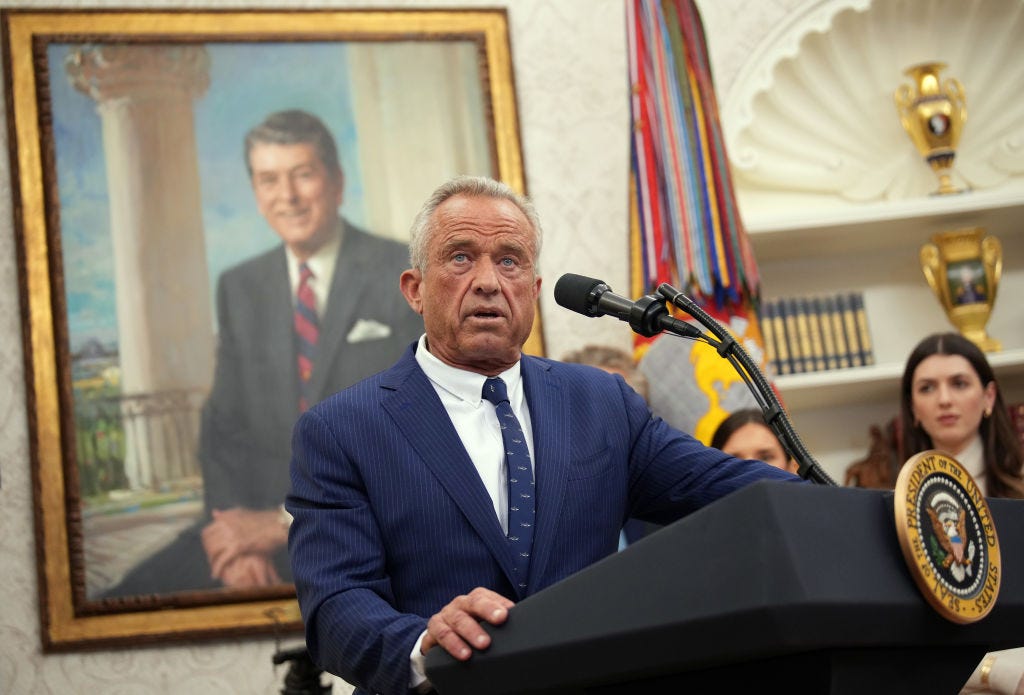President Trump’s first 100 days in office have included 143 executive orders, eight declared national emergencies, hundreds of January 6 pardons, DOGE, deportations, a war against higher education, an actual trade war, Liberation Day, MAHA, the return of the Iran deal, McDonald’s on Air Force One, Teslas on the South Lawn of the White House, lots of grant-freezing, a Zelensky showdown, the Gulf of America, the triumph of the plastic straw and, of course, Signalgate.
In other words, there’s a lot to make sense of. So we asked trusted writers, contributors, and friends of The Free Press to help us.
Here’s what Bill Maher, Mike Pompeo, Victor Davis Hanson, Tyler Cowen, Jamie Reed, Coleman Hughes, Jonathan Haidt, Sam Harris, Christopher Rufo, Nellie Bowles, Derek Thompson, Jed Rubenfeld, Kemi Badenoch, and many more think about the first 100 days of Trump’s second presidency.
Mike Pompeo on Sequels
If Trump 1.0 was a “come-as-you-are party” with a president who did not have time to prepare, Trump 2.0 is a “we’ve-seen-this-movie-before” throwdown.
The promises Trump made are the same: Stop illegal immigration, lower taxes, regulate less, don’t start new wars, and use common sense. The speed and breadth of attack this time around are of a different magnitude. Critics decry the ferocity, but having served in the cabinet for four years, 48 months is a whisper of time to reverse 12 years of Obama and Biden. I applaud the aggression, if not all the actions.
I’m counting on Trump not losing sight of the goals: Ending wars via surrender is just deferred maintenance, not victory; global tariffs are taxes; breaking institutions is worthy only when they grow back stronger and better.
Delivering on these objectives requires both incredible courage and pristine execution—and perhaps a gamble that only President Trump would bet on and throw the dice. Giddyup.
Nellie Bowles on MAHA
Trump himself is not a picture of health, no. Nor does he seem to be a man of health trends. I doubt his fork has ever touched kale, or even something more broadly in the category of “food that is green.” But his presidency has ushered in a new, radical movement around health, a shift like we saw in Berkeley through the 1970s, a thing called MAHA, short for Make America Healthy Again.
This new health movement has notched fast and enormous wins, specifically in that its leader, Robert F. Kennedy Jr., is now the secretary of Health and Human Services. And what is he doing? He is getting artificial dyes out of our processed foods, so that soon we’ll have the same beige-colored Froot Loops already sold to Canadians and Europeans.
It has been exciting to see how mainstream many health causes have become, now that MAHA figured out how to code them as edgy and right-wing. No longer are food dyes something only whispered about between San Francisco moms. The latest is that RFK is launching a research initiative to find out what’s causing autism, which the smart set likes to call a “superpower.”



